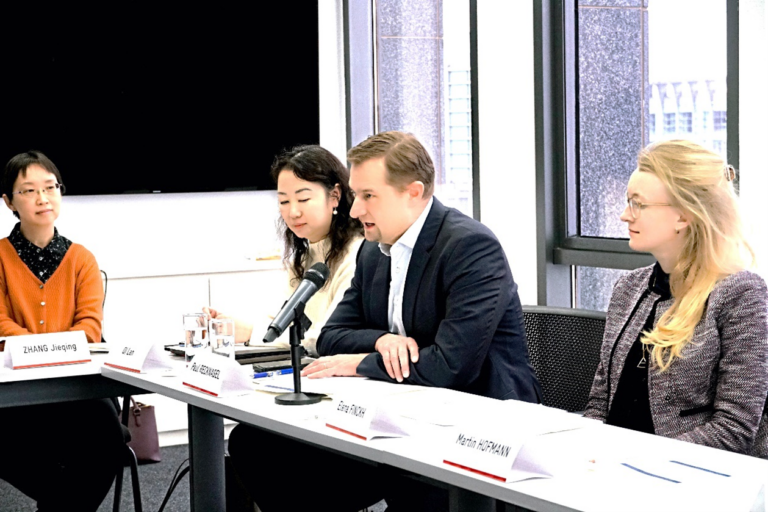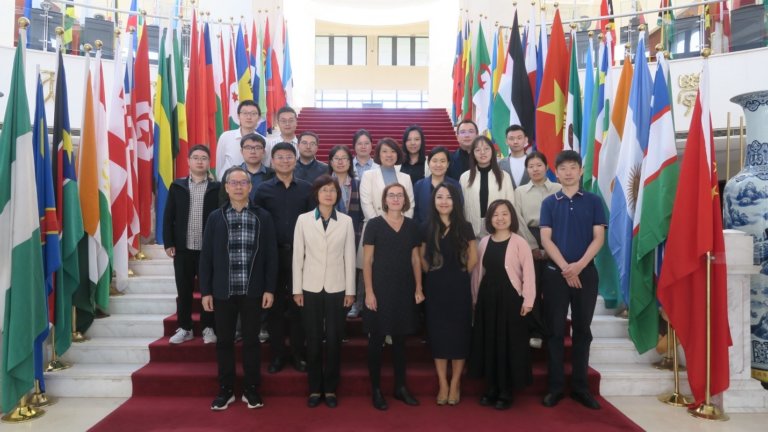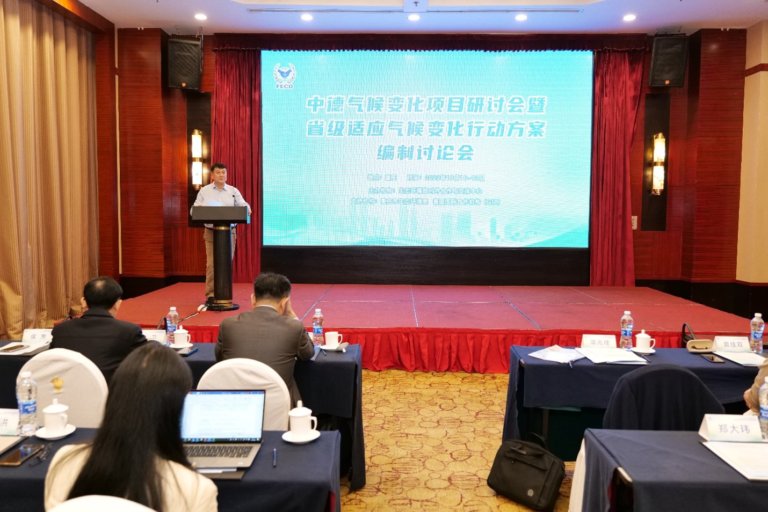Mainstreaming gender practices and gender justice has become a key aspect of project implementation. The German government’s International Climate Initiative (IKI), has recognized gender justice as a central element to address the nexus between climate change, biodiversity loss, and gender. To further strengthen the implementation of gender mainstreaming within IKI Projects in China, speakers from the IKI Office, the research institute Chatham House, and GIZ’S IKI projects held an exchange on its relevance in a Gender Capacity Building Workshop on 29 February 2024.

The workshop organized by GIZ China’s NDC Implementation Project sought to enhance the capabilities of IKI project staff in addressing gender issues while supporting the implementation of German government policies such as the Feminist Foreign Policy of the Ministry of Foreign Affairs.
Gender – a success factor in achieving climate goals
As part of the workshop, Josephine Bürgel, gender focal point at the IKI Office, presented the IKI gender strategy and action plan. A special focus was put on the intersection between the concept of gender, climate change, and its influence on GIZ’s work, stressing the necessity of gender-responsive and transformative approaches to pursue climate goals and minimise gender-based discrimination. Bürgel stressed that gender aspects must be an integral part of any IKI project: “Gender aspects are not the cherry on top, but an important success factor that needs to be taken into consideration in all stages of project planning and implementation.”
Underlining the relevance of gender and social equality in the pursuit of climate action in China, researcher Nina Jeffs, from Chatham House, presented her findings. By focusing on synergies between Chinese socioeconomic and climate goals, her research indicates a growing interest in gender inclusion within Chinese climate action. She emphasizes the relevance of integrated research agendas, interdisciplinary cooperation, and prioritizing gender mainstreaming in organizations as key factors for just transition and access to green jobs. Jeff’s findings serve as an important insight for the implementation of IKI projects in China.
Gender mainstreaming in practice
Gender mainstreaming has already been integrated into the daily work of IKI projects. This was emphasized by GIZ colleagues presenting best practices for gender mainstreaming in project development and implementation. Among others, examples include performing a gender analysis as part of project design to identify areas of action and applying gender-responsive event management within project implementation. Key takeaways were the importance of gender focal points within GIZ structures and the relevance of information sharing among colleagues on the topic of gender inclusivity. Practical tips regarding gender-responsive event management provided colleagues with the tools to better approach gender sensitivities in future project-related activities.
Interactive discussions throughout the workshop highlighted the high level of interest from participants to improve gender mainstreaming in their daily work. The workshop provided insights which have laid the foundation for more cross-cutting IKI and GIZ activities on gender mainstreaming within climate change cooperation, contributing to ongoing efforts in this field.
Further readings:
-
- Feminist Development Policy of the German Federal Ministry for Economic Cooperation and Development (BMZ)
-
- Nina Jeff’s research titled: ‘Climate Action in China: Four levers to advance gender and social equality’.



